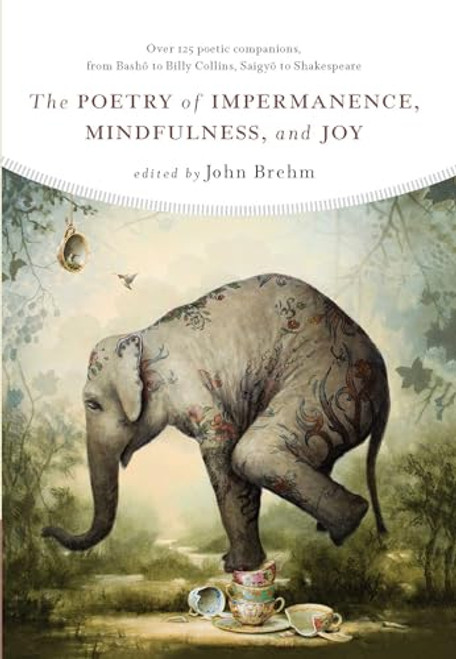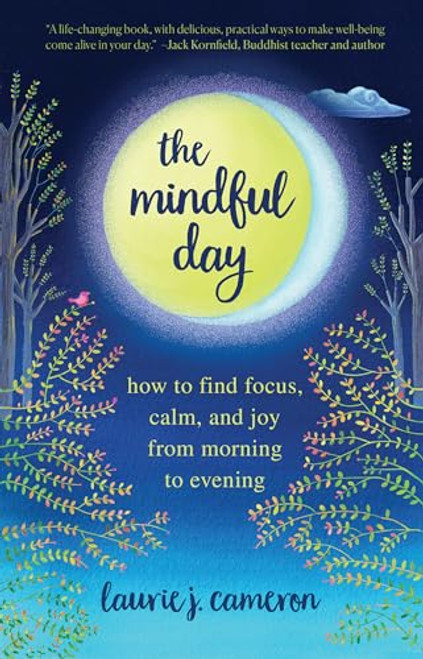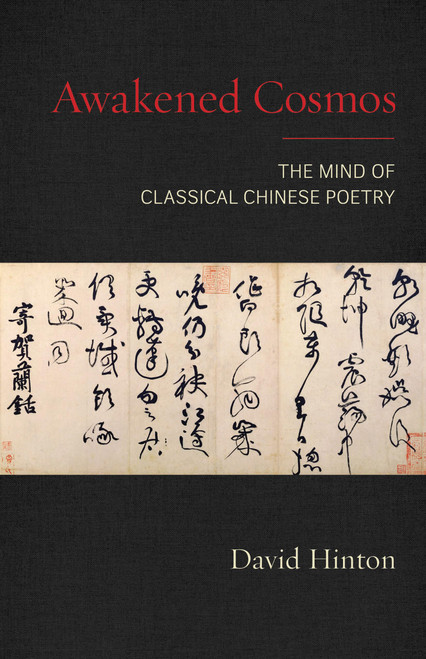Over 125 poetic companions, from Basho to Billy Collins, Saigyo to Shakespeare. The Poetry of Impermanence, Mindfulness, and Joy received the Spirituality & Practice Book Award for 50 Best Spiritual Books in 2017 by Spirituality and Practice Website. The poems expertly gathered here offer all that one might hope for in spiritual companionship: wisdom, compassion, peacefulness, good humor, and the ability to both absorb and express the deepest human emotions of grief and joy. The book includes a short essay on Mindful Reading and a meditation on sound from editor John Brehmhelping readers approach the poems from an experiential, non-analytical perspective and enter into the mindful reading of poetry as a kind of meditation. The Poetry of Impermanence, Mindfulness, and Joy offers a wide-ranging collection of 129 ancient and modern poems unlike any other anthology on bookshelves today. It uniquely places Buddhist poets like Han Shan, Tu Fu, Saigyo, Ryokan, Basho, Issa, and others alongside modern Western poets one would not expect to find in such a collectionpoets like Wallace Stevens, Robert Frost, Elizabeth Bishop, William Stafford, Denise Levertov, Jack Gilbert, Ellen Bass, Billy Collins, and more. What these poems have in common, no matter whether they are explicitly Buddhist, is that all reflect the essential truths the Buddha articulated 2,500 years ago. The book provides an important poetic complement to the many prose books on mindfulness practicethe poems here both reflect and embody the dharma in ways that cant be matched by other modes of writing. Its unique features include an introduction that discusses the themes of impermanence, mindfulness, and joy and explores the relationship between them. Biographical notes place the poets in historical context and offer quotes and anecdotes to help readers learn about the poets lives.
The Poetry of Impermanence, Mindfulness, and Joy
Wisdom Publications
MSRP:
Was:
Now:
$14.31 - $18.17
(You save
)
(No reviews yet)
Write a Review

Write a Review

Wisdom Publications
The Poetry of Impermanence, Mindfulness, and Joy
- SKU:
- UPC:
- 9781614293316
- Maximum Purchase:
- 2 units
- Binding:
- Paperback
- Publication Date:
- 6/6/2017
- Release Date:
- 6/6/2017
- Author:
- Brehm, John
- Language:
- English: Published; English: Original Language; English
- Pages:
- 312

Impermanence: Life and Loss on Superior's South Shore
MSRP:
Was:
Now:
$22.35 - $29.70

HarperCollins Christian Pub.
The Sunshine Mind: 100 Days to Finding the Hope and Joy You Want
MSRP:
Was:
Now:
$12.47 - $21.13

Shambhala
Awaken Every Day: 365 Buddhist Reflections to Invite Mindfulness and Joy
MSRP:
Was:
Now:
$14.13 - $25.06

NATIONAL GEOGRAPHIC
The Mindful Day: How to Find Focus, Calm, and Joy From Morning to Evening
MSRP:
Was:
Now:
$11.99 - $26.06
!





